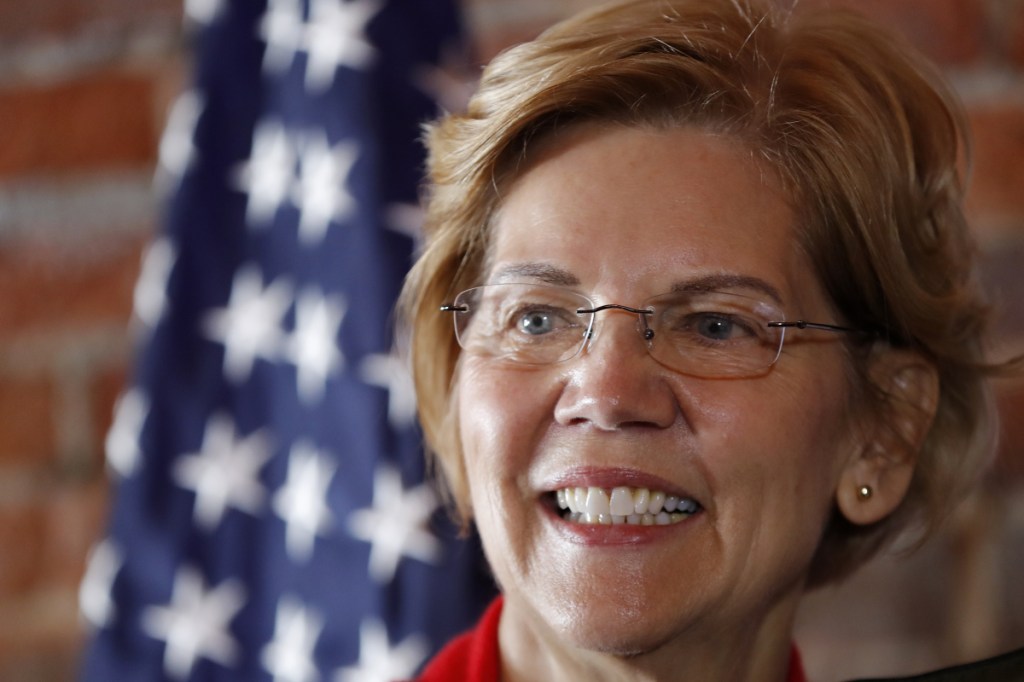WASHINGTON — Democratic presidential candidate Elizabeth Warren on Friday rolled out a proposal to break up the biggest U.S. technology companies, saying they have too much control over the economy and Americans’ lives.
In her pitch to rein in the influence of tech giants, the Massachusetts senator envisions legislation targeting companies with annual worldwide revenue of $25 billion or more, limiting their ability to expand and forcing parts of Google and Amazon’s current business structure to operate as separate entities.
As president, Warren said she would pick regulators who would seek to break up what she called “anti-competitive mergers” such as Facebook’s recent purchase of Instagram and Amazon’s acquisition of Whole Foods.
She made the pitch before a town hall appearance later in the day in the New York City neighborhood where Amazon recently scrapped plans to open a new headquarters.
It’s Warren’s latest effort to shape the policy agenda for the rest of the Democratic presidential primary, coming after earlier announcements of a “wealth tax” plan on households with high net worth and a universal child care proposal.
Her tech agenda, coming at a time of rising public concern about the growing power of the dominant players, could force the rest of her rivals for the 2020 nomination to follow her lead.
“Today’s big tech companies have too much power – too much power over our economy, our society, and our democracy,” Warren said in a statement. “They’ve bulldozed competition, used our private information for profit, and tilted the playing field against everyone else.”
It remains to be seen whether Warren will introduce legislation in the current Congress aligning with the first element of her plan. A spokeswoman, Kristen Orthman, said a bill introduction was not imminent.
Warren’s latest policy proposal promised to be a central element of her New York appearance as well as her scheduled visit Saturday to the SXSW conference in Austin, Texas.
Sen. Kamala Harris of California represents the tech industry’s home state, while Sen. Cory Booker has come under scrutiny for his past ties to tech companies – though he’s stepped up his criticism lately.
Facebook spokeswoman Monique Hall said the company had no comment on Warren’s proposal. Representatives for Google, Amazon, Microsoft and Apple did not immediately respond to a request for comment.
Send questions/comments to the editors.


